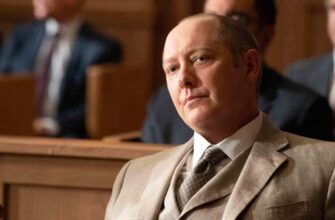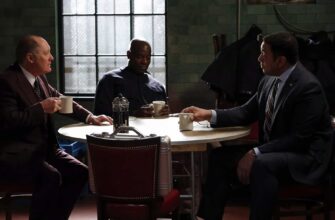Warning: Spoiler Alert
A quick note, first: there are a great many people for whom this Mad Men episode hits a little too close to home to be able to rate impartially, airing as it did on Mother’s Day. When the episode revolves in large part around a mother receiving a fatal cancer diagnosis and having to confront the notion of leaving her children behind … well, one might have hoped that AMC could have worked the schedule in such a manner to leave this episode a week earlier or later. It certainly undercuts the “TV drama as escapism” motif, that’s for sure.
Frankly, though, so much of the penultimate episode of the series was a complete downer and yet, because of the unique nature of these highly-acclaimed television dramas, somehow that description is not meant as a criticism – merely an observation. Matthew Weiner is such a master of evoking the exact tone that he is seeking that it has to be assumed that he intended to leave us 70 minutes of storytelling that would make us want to slash our wrists out of despair. Toward what end … well, (presumably) the series finale will provide us with that answer.
The predominant source of angst for this bottomless pit of depressing material was Betty’s cancer diagnosis. Having fallen down at school and broken a rib just as she’s beginning to pursue her postgraduate degree, X-rays reveal the full scope of her real problem: lung cancer that has metastasized to her bones, lymph nodes and other vital organs. While Henry jawbones the doctor about fighting through with state-of-the-art approaches (circa 1970), the devastated look on Betty’s face says it all. This is one fight that was truly over before it started.
Unable to get Betty to spend her exceedingly short – 9 ½ months to a year – time remaining utilizing all of her energy in a futile fight, a desperate Henry tries to play a volatile trump card: Sally. A surprise visit to his teenage stepdaughter to break the news at first appears to break her, but soon it’s Henry who’s sobbing and wondering what he’s going to do if Betty dies. This steely girl, on the eve of adulthood, is proving yet again that she’s stronger than her elders.
Betty is upset when Henry brings Sally home to lobby her, leaving her daughter alone for dinner with Bobby and Gene. Sally intuits that she’s about to become the woman of the house, sitting Gene on her lap in Betty’s chair and looking after him tenderly. Later, Betty delivers Sally a note with her wishes to be administered after her passing. She explains to Sally that she watched her own mother suffer horribly and that she will not inflict that on her own children. Betty’s manner is not cold, but definitely stiffer than you’d hope for in such a situation. But later, as Betty musters the energy to return to school in her remaining days, Sally cracks the envelope open for a look and finds a more personal, truly motherly expression than Betty has ever delivered before. Even through Sally’s tears, you can find her relief that her mother truly loves her.
Of the three main storylines of the night, the sole hopeful one went to Pete, who seems to be truly growing up at long last. Although he’s fitting into life at McCann seamlessly, a visit from Duck triggers an examination of his own state of affairs. Duck tricks him into interviewing with an executive at Learjet (on the pretext of simply having an informative discussion with him) and Pete’s satisfaction with his current state of affairs is not enough to ward off the persistent Duck. Through certain machinations, a package is assembled that would provide Pete with everything that he would ever want at Lear, including a replacement for the million dollars that he’s due from McCann by 1974. Pete tries to get a sense of what his brother would do given such an opportunity, but instead he ends up observing the emptiness of Bud’s pursuit of extramarital fun. Seeing his own personal failures mirrored in Bud’s affairs, he realizes that he’s not a slave to his mistakes just because he and his brother have imitated their father’s behaviors to this point. Undeterred by Trudy’s brushoff when he had waxed sentimental about their life together earlier, he comes to her house in the middle of the night to tell her of the job offer and to beg her and Tammy to move to Wichita with him. Still feeling burned by his profound marital failures, she is resistant, but when she admits that she still loves him, the ice is shattered. If there was only one happy ending to go around, would anyone at all have bet on Pete being the recipient?
OK, back to the aura of truly repressive depression, this time with Don. Driving through Kansas and then Oklahoma, his car breaks down and he spends weird, lonely several days in a tiny-town motel awaiting the completion of repairs. As he’s about to leave at the end of the week, the motel owner beseeches him to attend a fundraiser with him at the local American Legion hall. At the affair, Don’s generosity makes him popular but he is loath to join in the sharing of war stories because of his own traumatic experience. He is visibly nervous when a fellow Korean War vet comes to make his acquaintance, but just when you think he’s going to escape the function without any kind of exposure … he voluntarily bares his soul. Moved by the confession of a fellow vet that he massacred surrendering German soldiers in World War II, Don admits to accidentally causing the death of his commanding officer and exploiting the circumstances to get sent home. The understanding and warmth of his fellow veterans makes you think that Don’s purpose for enduring this small-town purgatory was to find a way to make peace with the death of the real Don Draper … until Weiner winds up and throws one of those characteristic curveballs right down Broadway.
Don’s episode-beginning nightmare about being discovered as a fugitive by law enforcement manifests itself – sort of – when he is awakened at the motel and confronted about stealing the $500 raised for the poor man who burned part of his house down. Don protests his innocence and is beaten for it, with the threat of more violence if he doesn’t cough up the missing cash. He quickly realizes that the motel’s shifty (male) maid, who was also working at the Legion event, was the culprit and he indicates in no uncertain terms to the kid that he’d better produce the money. Even as he is stern with the youngster, it’s clear that Don sees something of his younger self in him as he lectures about how such an incident can cause you to enter a damaging, lasting race from your true self. After Don passes along the refunded five C-Notes, he accedes to the young man’s request for a ride to the bus stop. As Don pulls over, you’re waiting for the kid to bop him in the head with a tire iron and make off with all of his money, but then Don surprises us all by simply offering the kid his car. At the end, a bemused Don, sitting on a bench, has just added his vehicle to the long list of possessions that he has shed since the midseason finale: his marriage, his apartment, his career in the advertising business (referred to in the past tense by both himself and Duck) and indeed, his very interest in being big-city Don instead of country mouse Dick anymore.
But Don’s still got three entities left in his life and they’re named Sally, Bobby and Gene. Until Betty was revealed as terminal, the consequences of Don going Kerouac seemed fairly minimal with his kids enmeshed in a comfortable household with an attentive stepfather. But a shattered Henry’s not going to be any use to anybody and indeed, there’s no substitute for your actual father anyway. With only one episode of the series remaining, word needs to quickly reach Don about the fate of his ex-wife so that he can begin formulating an actual plan to take care of them – and provide for them, now that he’s apparently booted the big money back to McCann. Speaking of that, will Megan’s million-dollar check bounce now? One can only hope. But the fates of Don, those crazy star-crossed kids Stan and Peggy and wealthy-but-unemployed Joan hang in the balance with the series finale looming. Mere weeks ago, Justified faced the seemingly-impossible task of tying all of the threads together in the final episode and they actually accomplished 95% of that in the first two-thirds of the story. There’s no way that Matthew Weiner will do that, because we know that’s not what he’s after. Hopefully, though, resolution itself in a grand, over-arching sense isn’t going to be too much to ask. We’ll know all the answers in six days.







